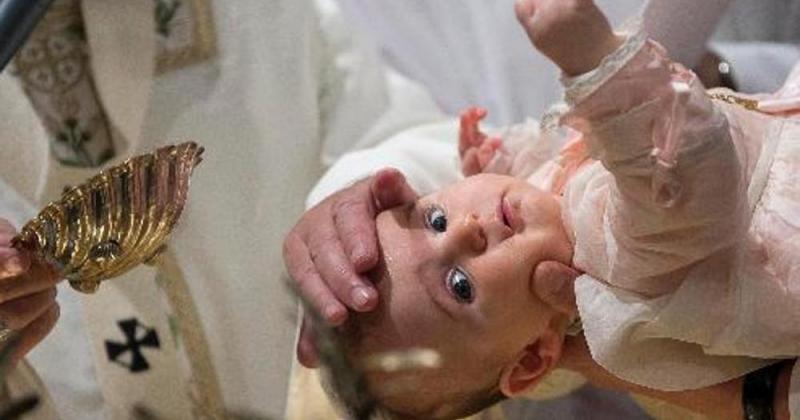The Pope baptized 34 newborns in the Sistine Chapel, “catechists will come afterwards, with ideas and explanations. But don't forget: if you don't speak the language of love at home, you won't be able to pass on” what we believe in.
*****
Faith can be transmitted "only in the dialect of the family", in the parent's "language of love". As tradition, on the day when the Church commemorates Jesus' baptism on the banks of the Jordan River, Pope Francis celebrates the rite of baptism for 34 newborns under the Michelangelo vault of the Sistine Chapel. 18 girls and 16 boys, many of them children of employees of the Holy See: their voices and cries were heard and accompanied much of the ceremony. At the beginning of the rite, the Pontiff traced the sign of the cross on each child's forehead, immediately afterwards the two parents did so too, and Francis wanted that, if there were any siblings, they too would too make this gesture, guided by the hand of their father. Once again, the Pope concluded by inviting mothers to go ahead and breastfeed the little ones if needed.
"Dear parents, you bring your children to baptism: this is the first step," Francis said," You have the task of transmitting the faith. Your children receive the Trinity: the Father, Son and Holy Spirit, who will dwell in their hearts. Then the Pope added off the cuff, "I would like to tell you one thing that is up to you to do: the transmission of faith can only be done in dialect, in the dialect of the family, in the language of the father and mother, grandfather and grandmother. Then the catechists will develop this first transmission with ideas, and explanations. But don't forget this: it’s done in dialect, and if the dialect is missing, if at home you don't speak that language of love, the transmission is not so easy, you won't be able to do it".
"Do not forget - continued Bergoglio - that your task is to transmit faith, but you must do so with the language of love, the language of your own home, of the family". Then the Pontiff pointed out that children also have their own "own dialect”, which makes us feel good. Now everyone is silent, but “if one starts to cry the others will follow, like in an orchestra”. It is the children’s dialect, and Jesus advises us to be like them, to speak like them. We must not forget this "language of children", who speak as they can. It is the language that Jesus likes so much. And in your prayers, "Francis said," be as simple as they are: tell Jesus what comes into your heart, as they tell it. Today they will say so with crying, like children ".
Finally, the Pope invited mothers to breastfeed their little ones: "If they begin "their concert", it is because they are too warm or not comfortable. If they are hungry breastfeed without fear, give them to eat, this is also a language of love.
For the baptismal mass, Francis, as he did in previous years, used the ancient altar of the Sistine facing East. And thus, he celebrated the liturgy giving his back to the faithful, as was the case in most celebrations up to the post-conciliar liturgical reform.
